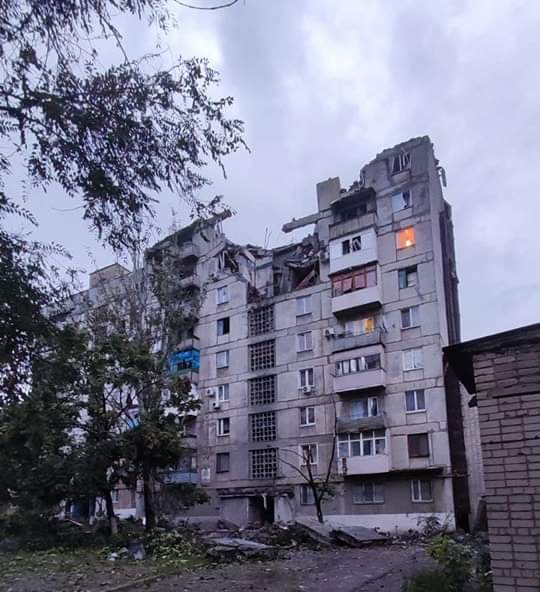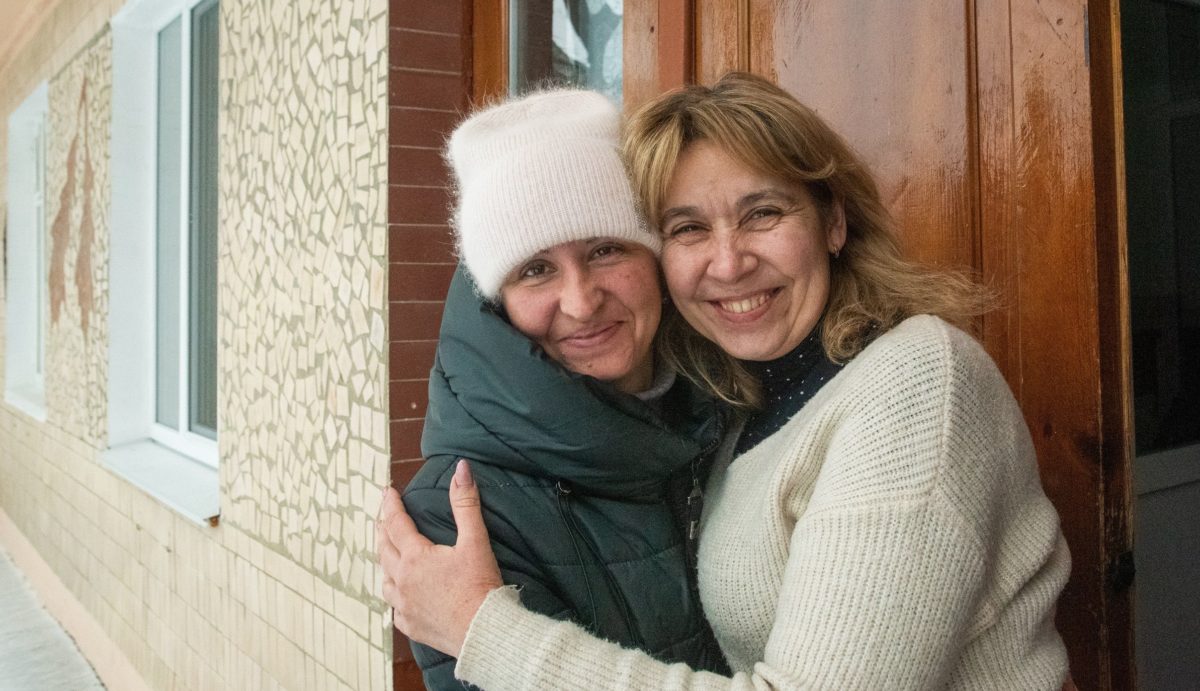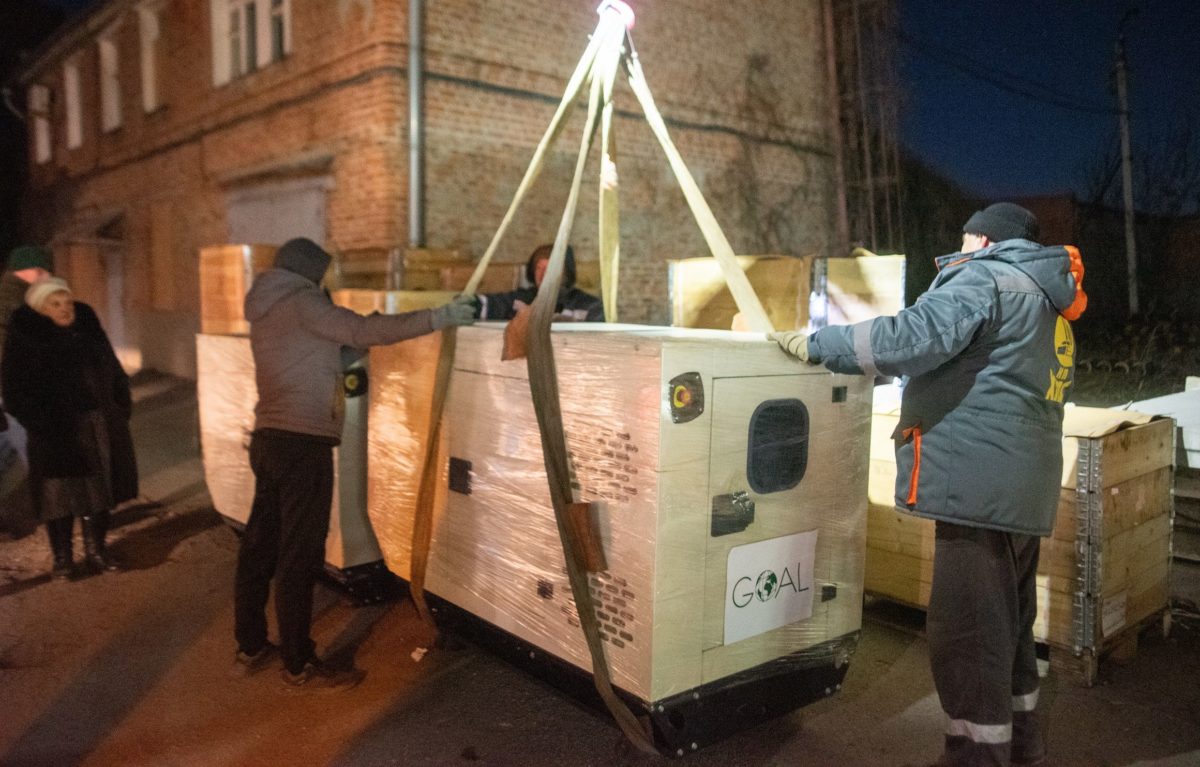 Stories
Stories
December 29, 2022 • 4 min read
35 year old Alina is a mother of two from Toretsk town in eastern Ukraine. When conflict broke out in her region in 2014, the town’s population was halved. Following the Russian invasion in February, most of the remaining population was forced to leave. She now lives in a displaced person’s centre three hours from Kyiv.
“My town used to have 80,000 people,” says Alina. “There were 12 coal mines employing a lot of people in the area. In 2014, when the conflict first started, around 40,000 people left. Since then we’ve lived in a grey zone , contested land.”
Over the past eight years, Alina’s family – husband Mykolai (36), daughter Khrystyna (14) and son Aleksi (9) were determined to continue with their lives.
“Despite the challenges, we stayed living there, to work, to keep our home going. I used to work in a laundry for the coal mines. My husband was a coal miner.”
“We had one hectare of land, and were farming for our own needs. We wanted our children to have natural food and it was also cheaper to grow our own.”

An apartment building hit by shelling in Alina’s hometown of Toretsk.
A Tough Decision to Leave
The tentative peace came to an end in February, when renewed conflict came to Alina’s doorstep.
“When the invasion started in February, things became terrifying. We saw regular shelling and explosions. There were attacks in the middle of the night and we would hide in the cellar under the house. We had no water supply, no electricity, no heating,” Alina says.
“We moved to a refuge in the middle of the Toretsk but in April we decided we could not stay any longer. We were worried for our children to live in such conditions. It is absolutely impossible to live a normal life there.”
“We decided to leave. We didn’t have a destination in mind. We just got in the car and had to go away. If there was no war, we would go west by Kharkiv. At that time it was under heavy shelling, so we needed to find a different way, which was difficult, as road signs were removed.”
“After 24 hours we arrived here. I went to the town council to see what help we could get and registered us as displaced people. We were then accommodated here in this displacement centre.”

Alina (left) with the displacement centre manager in Lubny, Galyna.
Seeking A Sense of Normality
They have no idea when, or if, they can ever go home but Alina and her family are trying maintain a sense of normality.
“My children study online now. Teachers from our hometown, who are also displaced across Ukraine, offered to continue lessons online.”
They also maintain contact with neighbours who chose to stay in Tornetsk. Following the invasion, this year, just 2,000 people are left in the town.
“Occasionally we can talk to our old neighbours, but there is almost no means of communication. Mostly it is elderly people who stayed in the town, as they felt they didn’t have anywhere else to go. I heard from a neighbour that my house is damaged, but still standing.”
Alina is appreciative of the support being provided by centre management, Right to Protection and GOAL at this challenging and uncertain time. She dreams of returning home to her farm.
“There are very good people here and our accommodation is good. Here we have a room together and we share the kitchen and bathroom. We are so grateful for the support, but as they say, ‘east or west, home is best.’ Hopefully we get to go home one day.”

GOAL delivering generators for displacement centres ahead of winter in Ukraine.
GOAL Response In Ukraine
Within days of the Russian invasion, GOAL teams were on the ground in Poland and Western Ukraine. Distributing food and non-food items such as hygiene kits, clothes and blankets to families fleeing the conflict.
Working with a Ukrainian partner organisation, Right To Protection, GOAL has now embarked on a larger programme offering legal and personal rights’ advice to internally displaced people. The programme aims to ensure families are aware of their entitlements and protections following the loss of homes and livelihoods, as well as where to access critical services.
GOAL and Right To Protection are providing these services in temporary shelters across Ukraine; in Kyiv, Cherkasy, Chernihiv, Poltava and Sumy oblasts. GOAL has also delivered over 30 generators and over 100 electric heaters to provide power and heat for temporary displacement centres in a number of regions, including recently in Kharkiv, where near-daily shelling continues.
As the war continue in Ukraine your support can help deliver vital support. Please give what you can today to help families like Alina’s.
